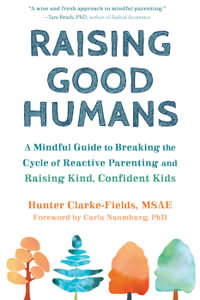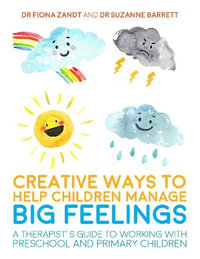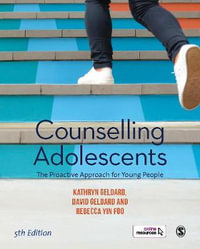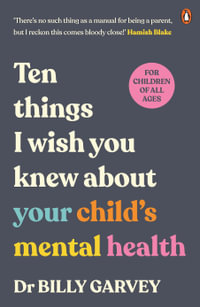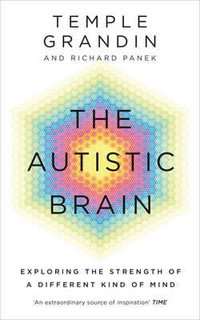With the rapidly growing demand for mental health care there is a need for efficient and effective psychological treatment options. Low Intensity Psychological Therapy has become well established in the England Improving Access to Psychological Therapies (IAPT) programme as a beneficial and versatile treatment option for mild-moderate symptoms of depression and anxiety. A Pragmatic Guide to Low Intensity Psychological Therapy: Care in High Volume, provides a guide to Low Intensity Psychological Therapy from the perspective of the Low Intensity Practitioner. This book describes the Low Intensity role as part of a multi-disciplinary approach to psychological care. The authors use a series of case vignettes, personal experience and current literature to help navigate the context of the role and its potential for ethical and safe expansion.
- Offers a practitioner perspective on the efficacy research of Low Intensity psychological interventions in adult populations, with a focus on working with diversity
- Aims to support Low Intensity Practitioners in developing competency within the role, with a focus on reflective practice, supervision, and personal wellbeing
- Includes case vignettes and examples to explore the real world implementation of Low Intensity interventions in group and individual settings including the management of long term physical health conditions
- Explores the benefits and pitfalls of the current role of the Low Intensity psychological practitioner within the IAPT programme
- Discusses the expansion of the Low Intensity psychological practice to international regions
Industry Reviews
"It is great to see a book specific to low-intensity working, as the field continues to develop and expand. It would make a welcome addition to reading lists for low-intensity training programmes, and to service, or personal, libraries and bookshelves for those working as, with, or alongside low-intensity practitioners. The fact it is written by James and Liz, who are so experienced in low-intensity practice themselves is an added joy. The book is an accessible insight for those who have not worked as low-intensity practitioners themselves, with plenty of reference to wider research and underpinning policy. For those who have worked, or are currently working or training in the field, this book is the equivalent of a helpful conversation with a knowledgeable, supportive, experienced colleague who will ask the right questions, cover the relevant topics, and challenge you to dig a bit deeper. James and Liz write wonderfully, and hit that perfect balance between a well-researched academic text and an accessible guide that tells it as it is." --Kirsty McNeilis, Specialist Lecturer and Unit Lead on the Children and Young People's Wellbeing Practitioner (CWP) PG Diploma at the Greater Manchester Psychological Therapies Training Centre (GMPTTC), Programme Lead on the Enhanced Evidence-Based Practice (EEBP) Programme at the GMPTTC "Working in health care services requires a wholly pragmatic approach which combines clinical best practice, operational guidelines and an understanding that real people (staff and our clients) do not neatly fit into boxes. This book fits beautifully into that space and is much needed for those working in low intensity roles and balancing what they have learned in training and what they see in clinical practice. Liz and James are experts in their field and bring experience and real-world knowledge together in a way that is easy to read and supportive to practitioners at all stages of their low intensity careers." -Dr. Sarah Watts, Clinical Director, Staffordshire and Stoke-on-Trent Talking Therapies Service, Midlands Partnership Foundation Trust "This is a detailed and considered exploration of what it really means to deliver LI therapies. The personal reflections and practice specific examples remind of the importance of working inclusively, and of the human connections which are at the heart of all helping and healing. An informative, engaging and thought provoking read for any practitioner." -Dr Orla McDevitt-Petrovic, Lecturer in Psychology, Ulster University "This book offers gritty, honest insights into the realities of working as a Low Intensity Therapist and forms a useful survival guide for trainees as well as anyone currently working, or considering working, in IAPT/NHS Talking Therapies. Presenting a nuanced, critical examination of key aspects of this healthcare service model, it is an essential resource for anyone interested in reflecting on IAPT/NHS Talking Therapies and the impact on the wider psy-sector in the UK and beyond. There is a timely exploration of important issues, including therapist burnout; the intersection of social deprivation and mental health; clinical realities around attempting to measure therapeutic outcomes; and adapting therapies for the needs of socially minoritized groups." - Dr. Sarah Cantwell, Cognitive Behavioural Therapist and Counsellor, Researcher, Founding member of IAPT Workers Cafe "This is a much-needed resource for Low Intensity Trainees, Practitioners, Supervisors and Educators written from the Perspective of Low Intensity Practitioners. It provides an insightful and comprehensive, yet accessible, overview of the current context of Low Intensity Psychological Therapy. It covers key topics such as describing 'Low Intensity', discussing our role within Multidisciplinary Teams and inclusive ways of working, to mention a few. It also doesn't shy away from key dilemmas and difficult topics, which are often avoided or skirted around. The case vignettes, personal experience and current literature ensure the content is engaging." --Taf Kunorubwe, CBT Therapist in Private Practice & Programme Director for the Postgraduate Certificate in CBT Skills at the University of South Wales "This is an outstanding book that will be of significant interest to PWP and low intensity practitioners and students, academics and those in the wider field of CBT. It is beautifully written in an accessible and easy-to-understand style; very well researched with fabulous insights cushioned by the most up-to-date research and follows a structure that provides scaffolding for the reader to deepen their understanding while enjoying the journey." --Dr. Paul Sullivan, Reader in Psychology, Dept. of Psychology, University of Bradford "In 1944, Winston Churchill said, "The farther back you can look, the farther forward you are likely to see." The historical context of the Wellbeing Practitioners suggests that the journey has only started. Unquestionably, in England, the IAPT impact has been phenomenal, on multiple levels. What is arguable, is the value and at what cost. The execution of the initiative into clinical delivery needed to be responsive and reactionary. Consistency in dynamic mental health services will rub against the finite resources in health economics. Authoritatively our authors applaud the virtues of IAPT and PWP's role wrapped around statutory services; with brave openness, they provide an experiential critical analysis that might be uncomfortable reading for some. This compelling book will inform a much-needed sensible debate, essential in a dynamic evolving modern health care system. From future trainees, wellbeing practitioners, service managers, clinical leads, and commissioners, to policymakers in England and nations beyond, all will find this book accessible, comprehensive and an essential point of reference to what comes next." -- Lee Grant, Clinical Director, Onebright Efficacy; Board Trustee, British Association for Behavioural & Cognitive Psychotherapies "An innovative new light on low intensity psychological therapies. Finally, low intensity therapy is no longer at the bottom of a hierarchy of superior therapies. This book credits low intensity therapy as its own entity, with something unique and different to offer. It provides clinical guidance for Psychological Wellbeing Practitioners that highlights the challenges this profession continues to face, as well as it's valuable successes in primary care mental health services. A must read for any clinician, trainee or academic working in the field of NHS Talking Therapies (formerly IAPT)". -- Laura Stevenson, Programme Director for Low Intensity Psychological Therapies, Newcastle University "With this book, the authors have managed to capture a side of low-intensity work rarely discussed formally: the actual reality of the day to day work of thousands of Psychological Wellbeing Practitioners across England, and beyond. In some ways a reflection of how far we've come, and in others a call to arms, there is a tone throughout that invites conversation and ways for practitioners to become more involved with the discussion about the work they do. The book also offers useful insights into advanced practice, such as long-term conditions work, supervision and therapeutic relationships. Ultimately, it reads as a passionate manifesto for an emerging profession." -- Samantha Torney, Lead Psychological Wellbeing Practitioner "I am delighted to finally have a book that conceptualises and brings to the forefront the benefits and value of low intensity interventions to both patients and the overall healthcare system. The specific theories of ideas, techniques and practice are not something easily documented when it comes to outcomes and improvements in a person's quality of life. However, in this book, we see many examples of the immense beneficial changes to patients through shared learning. One of the many things in particular that resonate is the focus of the importance of the integration with existing healthcare pathways especially when recognising the overlap between mental and physical health and wellbeing and one of the reasons this often fails to happen is the lack of acknowledgement for the benefits of low intensity interventions. Many guidelines put them into the category of self-help which often lacks evidence-based research - something which prevents healthcare professionals from acknowledging within clinical pathways. Here we have such a powerful tool evidenced recognising symptoms which are real to patients living with long-term conditions." -- Professor Sonio Cottom, Director, Pain Association, Scotland.

